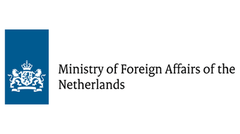

Annual Report 2019
February 2020
Cases (Deep Track)
It was stipulated in the Agreement that during the period it covers approximately six Cases will be investigated with the aim of tackling and preventing the adverse social impact of investments. These are Cases in which the other Delegations can possibly assist the pension funds in addressing and reducing adverse impacts within the investment chain.
The Cases working group consists of representatives of all the Delegations: the pension funds and the Federation of the Dutch Pension Funds, NGOs, trade unions and the Government. Each can contribute a Case, which can concern a listed company, a sector, or an issue.
During the first year, the working group selected two Cases on the basis of the selection criteria specified in advance in the Agreement:
- The adverse impact of the Case must be serious;
- The joint investigation should provide added value for the Case and allow different parties to contribute their specific expertise;
- The Case must address actual and potential adverse impacts on fundamental labour rights and human rights, such as freedom of association, forced labour, and children’s rights;
- Cases must act as examples and be instructive, so that the investigation has a broader relevance for the entire pension sector and other Delegations.
Case 1 Mining
The first Case was announced in mid-2019; it concerns a multinational, listed mining company. In practice, mining involves hazardous and uncertain working conditions and conflicts, often related to outsourcing and sub-contracting. Frequent violations of human rights include pollution of the living environment, forced relocation, pollution of water sources, violence by security guards, and inadequate consultation of those involved.
The Case focuses on various activities of the company in one country and later perhaps in several. In this Case, the Parties combine their knowledge and network to strengthen the engagement of pension funds, so that the company concerned can improve its policy and practice.
What is going on
One of the reasons for investigating this Case is the expansion of a local mine at a new location, forcing dozens of families in the area to move. The pension funds receive information from their data suppliers and from the company about the plans, the situation, and the measures taken. The trade unions and NGOs receive information from their local counterparts. The Ministry of Foreign Affairs asks the local embassy whether this information can be supplemented, for example with information about the latest political and social developments. That information has been compiled and in some respects appears to be contradictory. The challenge is to validate the information and, in consultation with the local partners and the company itself, to identify opportunities for improvement.
Start of engagement
Engagement with the company concerned has now begun and the Parties have shared what they know about it. They also jointly prepared the initial meeting that the pension fund held with the company at the end of 2019. The focus is on two issues, namely land rights and working conditions. Consultation is primarily in writing and by phone. In the course of 2020, there will also be a visit so as to talk to those involved on the spot and to examine the actual situation. By collecting the information from multiple sources and combining the knowledge and strengths within the Agreement, pension funds are in a stronger position in their discussions with the company. The goal is to bring about improvements in the company and its value chain through cooperation.
The Case will continue for the next two years. The site visit will be followed by on-site progress monitoring and a joint assessment of the investigation. The pension funds will continue their engagement on the basis of the investigation results. The local partners will continue to provide (local) information in support of that engagement.
Case 2 Palm oil
In the second Case, the Parties are focusing on the palm oil value chain. The Case concerns a multinational listed company that is a large-scale purchaser of palm oil and a producer of palm oil. The issues in this sector are human rights and labour rights, such as land rights, freedom of association, low wages, health and safety, forced labour, gender discrimination, and child labour. The Parties are currently working on a plan to pool their knowledge and apply it in the course of engagement. Treatment of this Case is therefore still in its early stages.
Jeroen Verburg, lid stuurgroep
Jeroen Verburg
Lucian Peppelenbos
Imke Greven
Maurice van Beers
Popuptrigger 2
Popuptrigger 3
Popuptrigger 4
Lucian Peppelenbos,
APG (on behalf of ABP, BPf Bouw and SPW). Senior responsible investment & governance specialist
We are seen as responsible investors
“As a shareholder, we engage companies about their policy. Thanks to cooperation with NGOs, trade unions, and the Government, we can tighten up our engagement. NGOs and trade unions have access to local sources of information that are not available to us. Armed with that information we can question companies more closely. That’s the added value of the Case discussions within the Agreement.
We ask companies to take measures to prevent or remedy the adverse impacts of their operations. The mining industry involves a lot of work with sub-contractors, for example, and these employ workers who work under worse conditions than those employed by the mining company itself. We press for that difference to be reduced.
Thanks to the Agreement, we enter into discussions with the company in cooperation with other funds. Together we still hold only a very small proportion of the shares, so we don’t exactly have the company on a tight leash. Even so, we do represent a certain segment of the shareholder market, namely responsible investors. That’s why discussing matters with us is important for the company after all. We are seen as influencers. We help the company to prepare for a future in which the questions we ask will become standard questions.
Engagement is a kind of diplomacy, and diplomacy requires patience and caution. We talk to the people at head office and board level. But even if the board entirely agrees with us, it doesn’t mean that changes will be implemented immediately in all the countries and branches where the company operates. Changes are often only slow. It does help, however, that we pay site visits and talk to local partners about the problems they are experiencing. As a result, the questions we ask the company and the examples we refer to become very specific.”

Jeroen Verburg,
Ministry of Foreign Affairs, member of the Steering Committee
“The Cases working group offers a unique environment in which to test new ways of collaborating that can enhance engagement on the part of pension funds. With the information from the local partners, trade unions and NGOs, and the Government’s embassy network, the pension funds expect to be able to make progress in their dialogue with companies, progress that they would be less likely to achieve if they had to do so on their own.”

Imke Greven,
policy adviser on land rights, Oxfam Novib
The point is for us to achieve impact on the ground
“This Case isn’t just a theoretical exercise, it’s about real life. We are at a point where a violation of human rights may be about to take place. And although our leverage is limited, this is when we can do our utmost to prevent or mitigate adverse impacts on people and the environment. That impact ‘on the ground’ is one of the Agreement’s most important objectives, but it’s also the most difficult to achieve.
The fact that we are discussing this Case together with pension funds, the Government, trade unions, and NGOs is extremely important for us. We can achieve more together than we can alone. NGOs and trade unions contribute a perspective and information that pension funds don’t currently have. We can provide them with specific information and questions to discuss with the mining company, thus strengthening their engagement.
Our goal is for the local community to be listened to. Indigenous people have the right to be consulted and to give consent for projects on the land where they live. If they wish to sell land, they must get a fair price for it. Solutions must be found for the problems caused by pollution of drinking water and the soil, and for the economic impact that operations have on their lives.
The adverse impacts of the new mining site therefore need to be properly clarified, and the communities must be involved in that. That’s a task for the local authorities, but if it’s ineffective for any reason, the company still has its own responsibility to act with care.
I’m hoping that with this Case discussion we can achieve something positive as regards the local situation, and also that we can take away lessons from the discussion that can be applied more widely. I want us to learn how to reduce the adverse impact of companies on the living environment, and for pension funds to invest only in companies that genuinely respect human rights.”

Maurice van Beers,
regional coordinator for Latin America, CNV
Our goal is for the company and the trade union to see one another as partners
“This mining Case isn’t just about abstract matters but about a specific company in a specific country and about specific people. We know exactly what the problems are, including labour rights and land rights. That’s what’s so special about dealing with this Case. And also that we sit down with all those involved in order to achieve improvements in that specific situation, i.e. with the investors/pension funds, the Government, trade unions, and NGOs.
Through our contacts with local partners, we’re able to provide the pension funds with information that they often don’t get from the mining company itself, for example, about the conditions in which subcontractors’ employees work and the employment terms under which they do so. Too low wages, unsafe conditions, and long workdays.
One of the improvements we hope to achieve is for there to be a telephone monitoring hotline in place. Employees of the mining company can then pass on complaints and reports via a mobile phone, which will then be dealt with in the agreed manner. That way, employees will be heard, whether or not they are permanently or flexibly employed. We’ll get a good idea of abuses and also be able to see whether the arrangements agreed on are actually being enforced. That’s also important for the company itself, because it can report to investors that its employees have a say.
In a lot of countries, trade unions are seen as a threat, with unionised employees often being threatened and obstructed. Our goal is for the company and the trade union to see one another as partners. Proper social dialogue ensures industrial calm and prevents major social conflicts from arising. That’s what we want to promote in this Case.”
